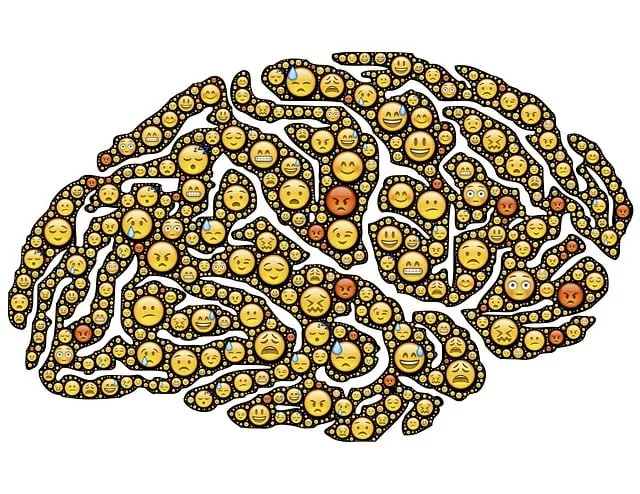Mental wellness coaching, as exemplified by successful programs at Kaiser Permanente's Highlands Ranch centers, offers tailored support using evidence-based techniques for stress, anxiety, and depression management. Unlike traditional therapy, it empowers individuals to find their solutions, setting achievable goals, building resilience, and cultivating healthy coping mechanisms. The holistic approach, backed by positive reviews, integrates counseling, education, workshops, and podcasts for long-term mental health management. Customized programs, incorporating techniques like CBT, mindfulness meditation, and journaling, cater to diverse needs, enhancing effectiveness and client engagement, as evidenced by Kaiser Permanente mental health center reviews Highlands Ranch. Comprehensive evaluation strategies ensure program design remains responsive to community needs.
Mental wellness coaching programs are gaining prominence as a proactive approach to holistic well-being. This article explores the evolving landscape of mental wellness coaching, focusing on its benefits and key components for effective implementation. We delve into the successful model employed by Kaiser Permanente’s mental health center in Highlands Ranch, reviewing their services. Additionally, we discuss customization strategies to cater to diverse needs and present evaluation methods to assess the impact of mental wellness coaching programs. Discover how these elements contribute to fostering resilient and thriving individuals.
- Understanding Mental Wellness Coaching: Defining the Role and Benefits
- The Kaiser Permanente Model: A Review of Their Mental Health Services in Highlands Ranch
- Key Components of an Effective Mental Wellness Coaching Program
- Customization and Individualized Support: Tailoring Programs to Different Needs
- Measuring Success: Evaluation Strategies for Mental Wellness Coaching
Understanding Mental Wellness Coaching: Defining the Role and Benefits

Mental wellness coaching is a growing field that offers individuals support and guidance to navigate their mental health journeys. At its core, this practice involves trained professionals who utilize evidence-based techniques to help clients manage stress, anxiety, depression, and other common mental health challenges. Unlike traditional therapy, coaching focuses on empowering individuals to find their own solutions and make positive changes in their lives.
The role of a mental wellness coach is multifaceted. They provide education, tools, and strategies tailored to each client’s unique needs. Through regular sessions, coaches help individuals set achievable goals, build resilience, and cultivate healthy coping mechanisms. One notable example is the success seen at Kaiser Permanente mental health centers in Highlands Ranch, where coaching programs have been integral in promoting employee well-being and preventing burnout, as evidenced by positive reviews. Additionally, these coaches often incorporate aspects of mindfulness, stress management, and self-care practices to foster a holistic approach to mental wellness, which can also be explored through engaging podcasts focusing on various mental health topics.
The Kaiser Permanente Model: A Review of Their Mental Health Services in Highlands Ranch

Kaiser Permanente, a renowned healthcare provider, offers a comprehensive mental health service model that has gained significant attention, especially in their Highlands Ranch location. The center’s approach is holistic, emphasizing self-care practices and individual well-being. Reviews highlight a positive impact on the community, with many praising the accessibility and effectiveness of their programs.
The Mental Health Center at Kaiser Permanente Highlands Ranch provides various services, including counseling, therapy groups, and educational workshops focused on mental wellness. Their podcast series production has also been a game-changer, offering valuable insights on mood management and self-care practices through engaging content. This multi-faceted approach ensures that patients receive not only clinical treatment but also tools to maintain their mental health long-term.
Key Components of an Effective Mental Wellness Coaching Program

An effective mental wellness coaching program should incorporate several key components to ensure it meets the diverse needs of individuals seeking support. First and foremost, a structured curriculum designed by experts in mental health is essential. This should cover various aspects of emotional well-being, including stress management, resilience building, and coping strategies tailored to different challenges. The program should also foster an environment of confidentiality and trust, encouraging open dialogue and honest self-reflection. Incorporating evidence-based practices and techniques validated through research, such as cognitive-behavioral therapy (CBT) principles, can significantly enhance the program’s effectiveness.
Additionally, mental wellness coaching should promote emotional intelligence (EI) development. EI involves recognizing and managing one’s emotions and understanding how they impact others. This skill set equips individuals with better self-awareness and empathy, enabling them to navigate interpersonal relationships more effectively. Risk Management Planning for Mental Health Professionals is another critical aspect, ensuring that coaches are equipped to handle potential crises or ethical dilemmas while maintaining professional boundaries. The program should also encourage ongoing learning and professional development through Mental Health Policy Analysis and Advocacy, keeping coaches updated on the latest research, trends, and best practices in mental wellness coaching.
Customization and Individualized Support: Tailoring Programs to Different Needs

Mental wellness coaching programs are increasingly recognizing the power of customization to cater to diverse individual needs. Unlike one-size-fits-all approaches, tailored programs offer personalized support, ensuring each client receives guidance that resonates with their unique circumstances and goals. This strategy is particularly relevant in a setting like the Kaiser Permanente mental health center in Highlands Ranch, where a wide range of patients seek assistance for various mental health concerns.
Customization involves incorporating specific techniques such as confidence-boosting strategies, mindfulness meditation practices, and mental wellness journaling exercises to create a comprehensive plan. For instance, a client struggling with anxiety might benefit from tailored breathing exercises and cognitive behavioral therapy techniques, while another individual focusing on self-improvement may receive guidance on setting achievable goals and maintaining a mental wellness journal to track progress. This individualized support not only enhances the effectiveness of the coaching but also fosters deeper engagement and commitment from the clients.
Measuring Success: Evaluation Strategies for Mental Wellness Coaching

Measuring success is a critical aspect of any mental wellness coaching program, ensuring that coaches and clients alike can track progress and identify areas for improvement. At the Kaiser Permanente mental health center in Highlands Ranch, evaluations go beyond simple self-reported surveys. They employ a multifaceted approach, incorporating both quantitative and qualitative methods to assess the effectiveness of coaching interventions. This strategy allows for a comprehensive understanding of clients’ experiences and outcomes.
One key evaluation tool is the use of pre and post-coaching assessments, which measure changes in symptoms, coping mechanisms, and overall mental health. Additionally, self-awareness exercises and regular reflection sessions enable clients to track their emotional intelligence development and the implementation of self-care routines for better mental health. These evaluations not only guide coaches in tailoring their approaches but also provide valuable insights for improving program design, ensuring that the services offered remain aligned with the evolving needs of the community.
Mental wellness coaching programs, as exemplified by innovative models like those at Kaiser Permanente’s mental health center in Highlands Ranch, have proven to be game-changers in fostering individual well-being. By combining defined roles, tailored support, and effective evaluation strategies, these programs offer customizable solutions for diverse needs. As the demand for mental health services continues to grow, further research and development in this field are essential to enhance accessibility and outcomes. The future of mental wellness coaching looks promising, ensuring that individuals have the tools and resources they need to navigate life’s challenges with resilience and self-care.






